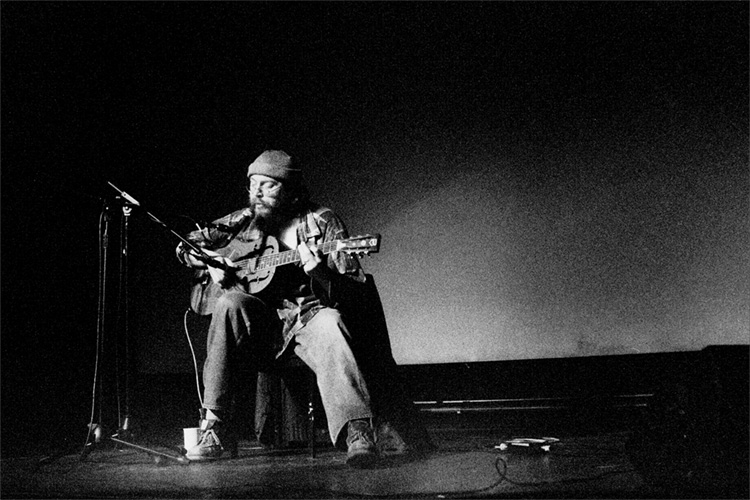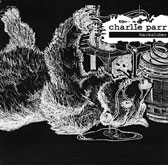Mix Tape: Charlie Parr’s “Backslider”
Chris Godsey reviews one of the northland's most original voices: Charlie Parr, on his new live album.


Duluth traditional blues musician Charlie Parr–looks and sings old but isn’t, bangs away on a few acoustic and steel guitars and an open-back banjo–must be experienced live to be truly grasped.
Parr’s studio recordings are much better than most artists’ at conveying what he’s about; but seeing him hunched over, occasionally raising his stern granny-glasses gaze, long, graceful fingers working a steady droning rhythm, Chuck Taylors or work boots stomping along, loose flannel and denim exaggerating his slouch, wild face and hair all over the place–seeing him in that state is how to connect the songs on the discs with the ancient tradition he lives to uphold.
He sings and plays to gain attention for elemental and sacred music–not the church kind, but something much more spiritual.
Short of seeing him live, his new CD Backslider, recorded over two nights last July at Duluth’s Fitger’s Brewhouse, is the best way to process who he is and what he does. Not every Backslider song is as satisfying as its studio version, but most of them convey the subtle and increasingly obvious rage that’s behind much of Parr’s music. Even many of his tender songs are about people in situations that test sanity and perseverance.
When Parr plays live, he tends to slur words, speed up as a song proceeds, and play weird games with lyric phrasing–staying ahead of or dropping way behind the rhythm. All that can be frustrating, especially for folks unfamiliar with the songs, but it can also be remarkably exhilarating. The version of “Lowdown” on Backslider isn’t nearly as clean or clear as the one on his 2001 disc Criminals and Sinners, but its substance and aggression make it mesmerizing.
When you buy Backslider, find a loud stereo with a reliable bottom end and crank “John Henry” to just past the point of comfort. Feel it in your chest, along with the nuanced anger and fear in Parr’s delivery.
That last paragraph really could and maybe should say more, but…the song…you’ll understand when you listen.
“Henry Young’s Body” on Backslider is transformed from a plaintive, warm guitar-and-harmonica studio ballad into a banjo something much more angular and grim. While distracted background bar chatter on most tracks accurately reflects Parr’s usual live environment, the almost-silence behind “Henry Young…” is amazing–almost as if everyone in the room knew enough to give the story its proper respect. Like they’re holding their beers but not drinking, only staring at Parr and actually listening to what he says about John Brown.
The disarmingly touching “Birdman” is the opposite: people holler and glasses clink and it sounds like Parr’s just in a corner by himself, telling a heartbreaking tale about a person no one notices to a crowd that’s too busy and social to care. “Birdman” contains some of Parr’s greatest lines: stuff like “I spend my days picking up dirty cans / I walk 13 miles to collect 85 cents / stand on the corner begging for some bread / wait in the hospital while others go ahead.”
Parr is as much of a writer as a singer. His best songs tell stories about characters who are drawn as credibly as any in a novel or short story. Maybe the best example on Backslider is “3-stage Pacemaker Blues,” a masterful tale with two distinct characters–narrator and protagonist–whose points of view and personalities become more astonishingly clear with every listen. The song is a masterpiece.
Very little on Backslider is disappointing. Depending on a listener’s mood, the usual aspects of a live recording–different, more raw, arrangements and phrasings from familiar studio versions–could be distracting. But the disc is so substantial, so packed with authenticity, honesty, and visceral passion, that it seems like it should weigh more than it does.